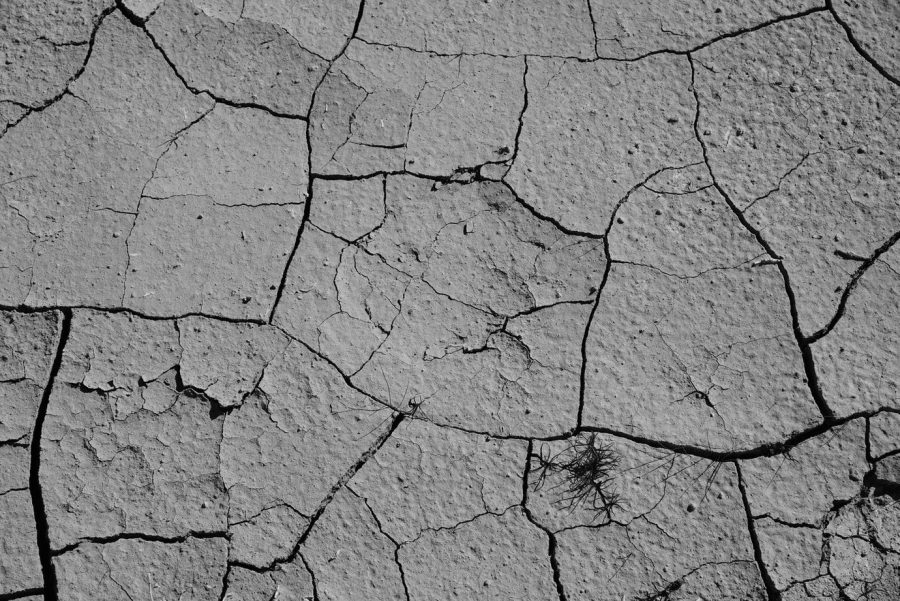Anxieties Warm Along with the Climate
The fear of the drastic and potentially deadly consequences has caused mental distress symptoms to increase.
On season two of the HBO series “Big Little Lies,” the main characters attend a meeting at their children’s school addressing the consequences of educating their children about climate change.
In class, the teachers taught the children about the impacts of climate change, resulting in one of the children having a panic attack. Laura Dern’s character, Renata, berates the teachers for the lesson, but the teachers insist that the children are already “bombarded” by the constant headlines about the Earth’s endangered future, and that it is their responsibility to help them understand it.
Although the show’s portrayal had a tongue-in-cheek nature, there is a growing occurrence of what has been coined “climate depression” or “climate grief.” This refers to the detrimental impact of climate change on mental health. It’s on the rise, and with the bombardment of headlines readers see on a near daily basis, it is likely not going away any time soon.
It may seem exaggerated, but the constant stream of news articles and alerts from various environmental organizations on the immense damage wreaking havoc on our planet has been affecting many individuals. The Yale Program on Climate Change Communication conducted a survey in April 2019 that found 62% of Americans were at least “somewhat worried” about the climate and 23% were “very worried.” The 24-hour news cycle and social media has escalated the coverage. Although it is great to have more awareness for such an important issue, there may come a point at which it does more harm than good.
One question that the “Big Little Lies” scene inspires is whether the younger generations are the most likely to worry. There have been several studies focusing on the mental and emotional impact of climate change on children and adolescents in particular. As with many other issues, teenagers have emerged at the forefront as activists for the fight against climate change. This may be in line with the cynicism of older generations compared to the passion for change found in younger groups, but it also may be a direct result of the fact that climate change will affect the younger generations more.
Their children and grandchildren will be the ones that suffer the worst, should nothing change. While some young adults are deciding not to have children due to the bleak outlook of many climate change reports, younger generations do not want to have to make that sacrifice. Many therapists have reported encountering the subject with their patients. In fact, the American Psychological Association even created a climate change guide for mental health professionals to help them in aiding climate-worriers as well as to promote awareness for the condition.
This may suggest that those who are already prone to anxiety are the most likely to suffer from this “climate depression.” The biggest fear highlighted by these individuals is a hopelessness about the future, feeling like the burden placed on the Earth is irreversible. It is a situation that seems to be out of our control at this point. The fear of the drastic and potentially deadly consequences has caused mental distress symptoms to increase.
The weather changes that have occurred as a result of climate change have also contributed to worsened mental health. Global warming has led to higher temperatures, which has been shown to have a negative impact on an individual’s mental health. This is in part due to exacerbating preexisting mental health conditions as well as adversely affecting the physical well-being of patients taking medication for their mental health. In addition, increased precipitation aggravates symptoms of depression and stress.
The extreme natural disasters that have risen in frequency due to climate change have caused catastrophe for millions. The loss of life, homes and communities has undoubtedly contributed to rates of depression and anxiety.The anxiety of a changing climate and endangered future for the whole planet, though sometimes difficult to deal with, can lead to a positive force for change. The new generation that struggles from “climate grief” has especially taken on the responsibility of organizing a multitude of events to promote environmental awareness and protection.
As one teen activist, Grace Curley, explained to Willamette Week, “Our government needs to realize that we are the people who will experience the effects of climate change in the future.”
Perhaps the conversation about climate depression is one that will become an impetus to make a real difference.
Columnist volume 101, Editorial Director and Opinion Editor volume 102
















